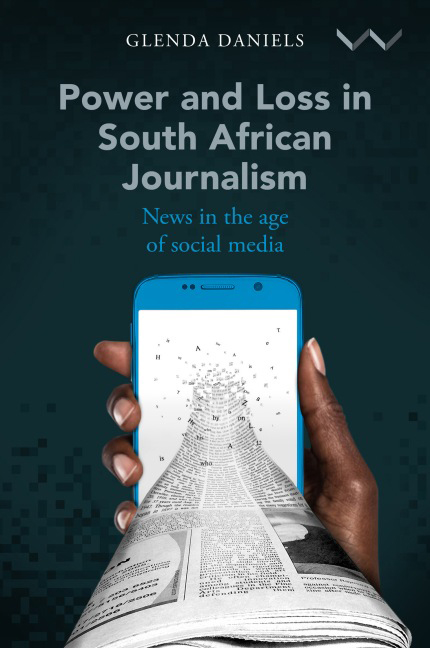Book contents
- Frontmatter
- Dedication
- Contents
- Tables and Figures
- Preface
- Acknowledgements
- Acronyms and Abbreviations
- 1 Power and Subjection in the Media Landscape
- 2 The Media, the State and Zuma’s ANC
- 3 ‘Zupta’: Power and Loss in Investigative Journalism
- 4 The Job Loss Tsunami
- 5 Going Online When You’re Offline: The Case of Community Media
- 6 The Anti-Feminist Backlash, the Glass Ceiling and Online Trolls
- 7 Decolonial ‘Green Shoots’
- 8 Power, Loss and Reimagining Journalism
- Epilogue
- Appendices
- Appendix A Press Code of Ethics and Conduct for South African Print and Online Media (effective from 1 January 2016)
- Appendix B amaBhungane Stories in the Past Two or Three Years
- Notes
- Glossary
- Bibliography
- Index
2 - The Media, the State and Zuma’s ANC
Published online by Cambridge University Press: 10 September 2020
- Frontmatter
- Dedication
- Contents
- Tables and Figures
- Preface
- Acknowledgements
- Acronyms and Abbreviations
- 1 Power and Subjection in the Media Landscape
- 2 The Media, the State and Zuma’s ANC
- 3 ‘Zupta’: Power and Loss in Investigative Journalism
- 4 The Job Loss Tsunami
- 5 Going Online When You’re Offline: The Case of Community Media
- 6 The Anti-Feminist Backlash, the Glass Ceiling and Online Trolls
- 7 Decolonial ‘Green Shoots’
- 8 Power, Loss and Reimagining Journalism
- Epilogue
- Appendices
- Appendix A Press Code of Ethics and Conduct for South African Print and Online Media (effective from 1 January 2016)
- Appendix B amaBhungane Stories in the Past Two or Three Years
- Notes
- Glossary
- Bibliography
- Index
Summary
Yes to life. Yes to love. Yes to generosity.
Frantz Fanon, Black Skin, White MasksUsing theories of power and democracy, this chapter analyses the tension in the relationship between the (ANC) and the media during former president Jacob Zuma's reign. In the chapter, Fanon is ever present. Fanon slated the new elites, the formerly oppressed, in the post-independence era in Africa as self-interested and greedy vultures – corruption ruling the day, morality in slim evidence. As Dale McKinley has noted:
Dishonesty and incompetence are either rewarded or simply ignored and replicated,while those who expose and confront the truth, who raise the alarm and who try to uphold collective, social as well as personal accountability are consistently punished, marginalised, labelled and made to feel like outcast spoilers who do not belong.
The chapter's aim is to show how power works, and how subjects become subjected, for example, in the case of the ‘SABC 8’, eight journalists who were bullied and ultimately fired by the chief operating officer (COO), Hlaudi Motsoeneng. They turned their backs on his voice, and towards the professional codes of ethics, breaking away to reveal the ugly underbelly of the South African Broadcasting Corporation (SABC) in openly watched, televised parliamentary sessions.
One of the journalists, Suna Venter, died from ‘broken-heart syndrome’. Even though this chapter is about the tensions between Zuma and the media, it asks underlying questions that are pertinent today, and will be for the future: about how close journalists should be to political factions and power; whether they should belong to political parties; and why political and investigative journalists so often become pawns of political factions – as we witnessed with the revelations about the Sunday Times.
The ethics and diversity subcommittee of the South African National Editors’ Forum (Sanef) conducted a survey in 2016, which asked: ‘Should journalists belong to political parties? Circle your answer, yes or no, and please give your reason.’ The following 12 newsrooms were selected to participate in the onepage survey, to give a broad spread across companies:
SABC Digital News (public-owned entity)
Interface (SABC) (public-owned entity)
Daily Sun (Media24)
Sunday Times (Arena Holdings, formerly Tiso Blackstar)
Sunday Sun (Media24)
City Press (Media24)
- Type
- Chapter
- Information
- Power and Loss in South African JournalismNews in the Age of Social Media, pp. 21 - 40Publisher: Wits University PressPrint publication year: 2020



